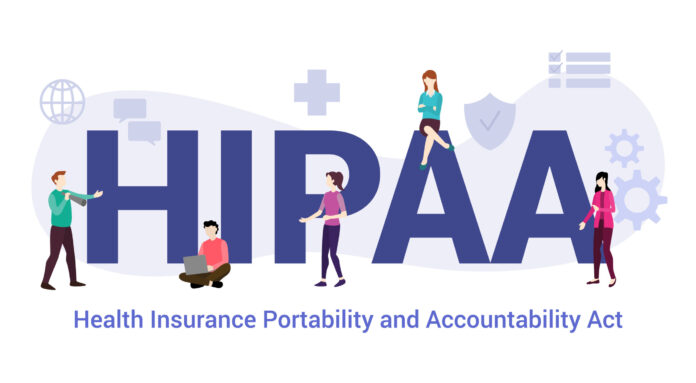Being sick is an unpleasant experience. But nothing will be more unpleasant than having your medical information mishandled. Fortunately for everyone, HIPAA has strict guidelines that protect you against such intrusions.
Healthcare professionals are required to go through training and rigorous exams to learn how to handle medical information with care. You may want to visit hipaaexams.com to know more details. Meanwhile, this article will discuss about HIPAA and its significance to every patient.
What Is HIPAA?

Before this article goes into detail about HIPAA itself, allow it to go over what it stands for.
HIPAA stands for the “Health Insurance Portability and Accountability Act of 1996.” HIPAA guidelines were created to protect your information should you need medical assistance at any point. The aim is to make it easy for you to change health service providers or insurers while still ensuring that your data is not shared. For information to remain protected, doctors and other individuals who work in medical settings have been made aware of what they can and cannot do.
How HIPAA Protects Patients’ Rights?
Below are some ways in which the Health Insurance Portability and Accountability Act protects your rights as a patient:
1. The Right To Privacy

HIPAA ensures that health-related information is kept safe and only shared when the patient gives express permission. Medical facilities, health insurance providers, and all other entities that work in the medical field must get signed consent from patients before they can legally share any information. This rule enables the patient to control their medical information and make sure that healthcare providers remain in charge and accountable for whatever happens. It also gives patients peace of mind knowing that their data is safe from unauthorized access.
The HIPAA enables you to decide which parts of your health record can be given or withheld from anyone who asks for it. You have the right to choose whether or not to grant access to your parents, friends, family members (including children), or other loved ones. Your health records are for your eyes only, and you have the right to keep them that way.
2. Rights Concerning Psychotherapy Notes
Psychotherapy notes are anything from charting, recording, or notes of a mental health treatment session and all other substance abuse-related information. They can be summaries of your sessions with therapists, psychiatrists, psychologists, and so on. HIPAA provides more protection for these types of notes compared to regular medical records. Psychotherapy notes need more than just generalized consent from the patient involved before they can be accessed or viewed by anyone else.
Furthermore, health insurance providers can no longer demand access to an insurer’s psychotherapy notes to determine coverage. This provision also prohibits health insurance providers from denying coverage to a person with mental illness just because they do not have access to their psychotherapy notes.
3. The Right To Amend Your Medical Records
Suppose you happen to notice that your treating physician is using an inaccurate or misleading health record at any point in time. In that case, you have the right to have this corrected immediately.
Once the doctor refuses to amend this information or does not do so within a reasonable time frame, then you may ask that it be documented in your record that the doctor’s office has been contacted about this issue and has failed to make changes as requested. This way, future physicians will know that there is something wrong with the record and it is not a comprehensive account of your medical history.
4. The Right To Be Informed Of Breaches Of Your Medical Information

Suppose a medical institution has been made aware of any unauthorized access or viewing of your information in their system. In that case, they will immediately attempt to contact you as per HIPAA guidelines. It’s the patient’s right to be informed of any breach, and it’s also their right to know what the consequences of such a breach will be.
If there happens to be any chance that a healthcare provider shared your information with others without your permission, the institution should make every attempt to notify you. Notifying patients of these breaches within the specified time under HIPAA will help patients make countermeasures and prevent further damage because of the incident.
5. The Right To Request Insurance Portability
The HIPAA also enables you to request insurance portability, one of the most important rights a patient can have. Suppose your health insurer has been bought out by another company or decides to no longer offer your particular plan. In this case, it lets you know that you have the right to request a copy of your plan from them to find another company that will cover your exact needs.
6. The Right To Access
As a patient, you have the right to access your records and request to view them, as well as receive copies of those same records if needed. Whether you’re making a request on paper or through an online portal, the documentation must be provided to you without too much delay. Healthcare providers aren’t also allowed to charge any fee for providing copies of medical records.
7. The Right To Make Health Decisions On Your Own

This refers to the patient’s right to decide whether or not they want surgery, psychotherapy, treatment with psychiatric medicines, and so on. If you are of legal age and do not have a diagnosis that prohibits you from making your own decisions, your informed consent is necessary before undergoing any medical procedure or treatment. You can also refuse to accept any therapy or procedure that your doctor suggests. No healthcare provider or insurer is allowed to persuade you to undergo invasive treatments without proper consent from the patient.
Key Takeaway
HIPAA provides patients with their rights concerning the health care system and how doctors and other healthcare providers treat them. These rights can include how records are shared, what happens to that information, and which notes might be kept on a person’s progress in therapy or psychiatry or at a mental institution. It also includes insurance portability for a patient who can no longer be covered by a particular health insurer, as well as the right to access and make decisions on any kind of treatment or medical procedure.
Patients have many rights established under the HIPAA law concerning their medical records, and these rights are something everyone should be aware of.






